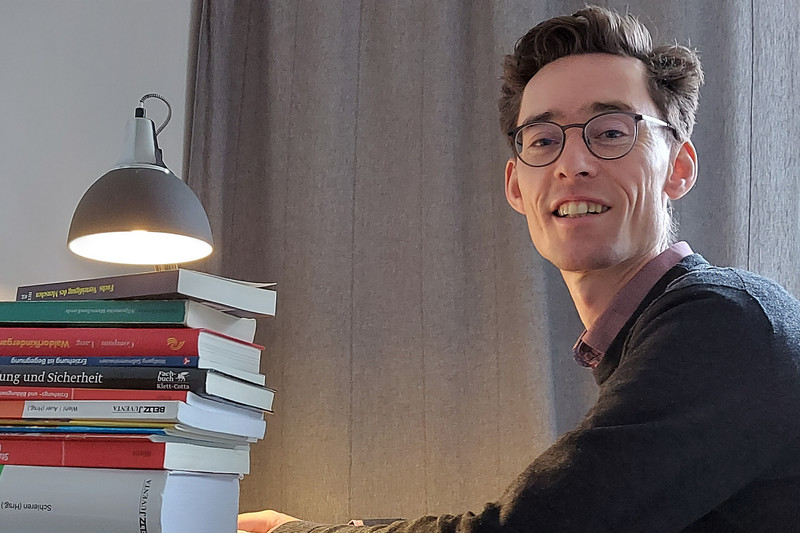Building academic Bridges

Plenty of time for free play as well as experiential spaces for body, soul and spirit: Early childhood Waldorf education aims to accompany young children gently and promote their development holistically. How do professionals and parents characterise this unique educational approach? Philipp Gelitz pursued this question as part of his doctorate, which he recently completed as the fourth scholarship recipient of the Waldorf Education Graduate Programme at Alanus University.
Waldorf kindergartens have been around for almost 100 years, and there are currently around 2,000 institutions worldwide. But what is actually typical of early childhood Waldorf education? The expert interviews that Philipp Gelitz conducted with kindergarten teachers, lecturers and parents for his doctoral thesis, supervised by Professor Guido Pollak at the University of Passau, provide interesting insight into this question. According to the study, in addition to a strongly idealistic view of human beings, special pedagogical elements shape everyday life in kindergartens and crèches: “Free play, but also the importance of sensory experiences, rhythm and rituals, are mentioned”, explains Philipp Gelitz. “The latter, in particular, is a distinctive characteristic of Waldorf education. As is the whole subject area of shell and security, the desire to create protective spaces where the children feel safe.” Other specific features include the many celebrations throughout the year, artistic activities such as puppetry or watercolour painting, as well as household and handicraft activities. “The interviewees state that conference work and Waldorf pedagogical training is also important to them on a structural level”, adds Philipp Gelitz.
In many ways, the strong focus of early childhood Waldorf education on experiencing self-efficacy and perceiving self-competence, as well as an emphasis on salutogenic principles, ties into modern psychological and educational science concepts. Unlike Waldorf education, however, there has been almost no academic exchange on this so far. Philipp Gelitz regrets that “the few studies in this field go nearly completely unnoticed, and the bridges have not yet begun being built from both sides”. As a member of staff at the Institute for Early Childhood Education at Alanus University, he wants to help change this. He already organised a public lecture series on early childhood in the autumn semester of 2022/23, the contributions of which will soon be published as a book. Plans are in place to repeat the experience this coming autumn semester. One aspect of the Waldorf Education Research Training Group that Philipp Gelitz particularly appreciates is that the fellows can pursue their doctorates in different places and maintain an open discourse with a diverse group of people. “It follows that Waldorf education is not only negotiated internally at Alanus University, but in an open discourse with professors who are decidedly not Waldorf-oriented.”
More information:
Founded in 2015, the Waldorf Education Research Training Group at Alanus University awards scholarships for doctoral projects to stimulate research and fuel the talent pipeline of young academics in the field of Waldorf education. The programme is financed by the Software AG Foundation, the Educational Research Center at the Association of Waldorf Schools and the Stockmar Company.
In an interview published on the Alanus University website, Philipp Gelitz provides more detail on the results of his doctorate study and his subsequent academic plans at the Institute for Early Childhood Education.
Read more:
Philipp Gelitz: Pädagogische Qualität in Waldorfkindergärten und Waldorfkrippen. Eine qualitative empirische Studie zu spezifischen Qualitätsmerkmalen aus Sicht beteiligter Erwachsener [Pedagogical approach in Waldorf kindergartens and Waldorf crèches. A qualitative empirical study on specific characteristics from the perspective of the adults involved]. Wiesbaden: Springer VS 2022
https://link.springer.com/book/10.1007/978-3-658-40377-5
